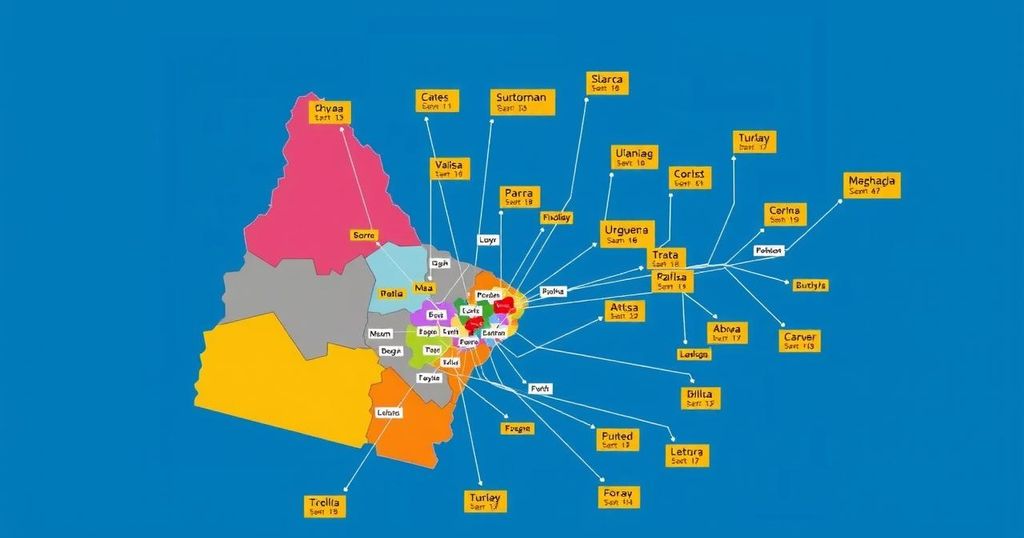Examining Uruguay’s Political Stability Amid Rising Discontent

Uruguay showcases political stability, evident in respectful electoral transitions, contrasting sharply with Brazil’s and Argentina’s recent turmoil. Yet, persistent socio-economic issues, including rising inequality, challenge the perception of a model democracy, indicating potential risks to its enduring stability.
In the heart of South America, Uruguay stands out as a beacon of political stability amid the turmoil surrounding its neighbors, Brazil and Argentina. Following the recent presidential elections, marked by a significant turnout and civil comportment, defeated candidates promptly extended their congratulations to the victors. Analysts regard this culture of respect and adherence to democratic norms as a hallmark of Uruguayan politics. However, beneath this facade of stability, there lurks a troubling undercurrent of discontent, rooted in social and economic challenges that persist over time. Issues such as rising inequality and a declining quality of public services have begun to fuel skepticism about the effectiveness of the current political model. Thus, while Uruguay projects an image of democratic success, critical examination reveals a nation grappling with significant internal issues.
Uruguay, located between two politically turbulent countries, Brazil and Argentina, has historically been viewed as a model of democracy in Latin America. The stability of its political landscape, characterized by peaceful electoral transitions and robust civic engagement, has garnered international admiration. However, recent developments hint at unrest among the populace, which poses questions regarding the sustainability of its democratic institutions. The nation’s economic and social fabric is showing signs of strain, as evidenced by increased calls for reform from various segments of society, highlighting a potential disconnect between political satisfaction and the lived realities of citizens.
The recent elections in Uruguay underscore the nation’s commitment to democratic principles and the peaceful transfer of power. Nonetheless, they also expose undercurrents of dissatisfaction with socio-economic conditions that may threaten this stability. Addressing these underlying issues will be crucial for Uruguay to maintain its reputation as a steady democracy in an increasingly volatile region.
Original Source: www.barrons.com







